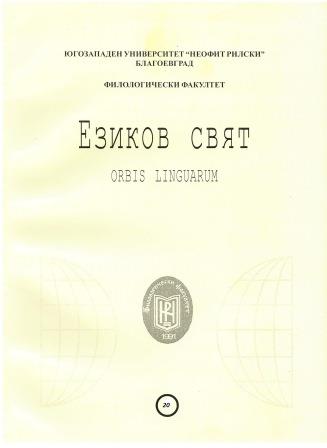NO LONGER ELITE? OBSERVATIONS ON CONFERENCE INTERPRETING, COVID-19, AND THE STATUS OF THE POST-PANDEMIC PROFESSION
NO LONGER ELITE? OBSERVATIONS ON CONFERENCE INTERPRETING, COVID-19, AND THE STATUS OF THE POST-PANDEMIC PROFESSION
Author(s): Antony Hoyte-WestSubject(s): Social Sciences, Language and Literature Studies, Sociology, Translation Studies
Published by: ЮГОЗАПАДЕН УНИВЕРСИТЕТ »НЕОФИТ РИЛСКИ«
Keywords: conference interpreting; elite sociology; professional status; conference interpreters; remote simultaneous interpreting; COVID-19; coronavirus
Summary/Abstract: This overview explores the impact of the ongoing COVID-19 pandemic and the associated restrictions on the professional status of the conference interpreting profession, paying specific attention to the EU context. With international conferences cancelled or transformed into online events, employment prospects for many conference interpreters have been affected sharply as the profession adapts to the new reality. In the first instance, historical and contemporary aspects of the conference interpreting profession are outlined, including the key role that international organisations played in its development as well as the growing level of scholarly interest in the profession and in conference interpreters themselves. Using information obtained primarily from language industry media sources, this is complemented by an overview of the impact of COVID-19 on the profession, with a particular focus on the EU and its accredited freelance conference interpreters during the pandemic. In addition, issues regarding technological changes – including the shift to remote simultaneous interpreting – are also outlined, with reference to some of the legal and ergonomic implications of this move. The impact on education and professional development is also touched upon, as well as the move towards a more holistic approach to interpreting settings in research and practice. Finally, given the preliminary nature of this overview, suggestions for further empirically-based research projects following the COVID-19 pandemic are offered.
Journal: Езиков свят - Orbis Linguarum
- Issue Year: 20/2022
- Issue No: 1
- Page Range: 071-077
- Page Count: 7
- Language: English

